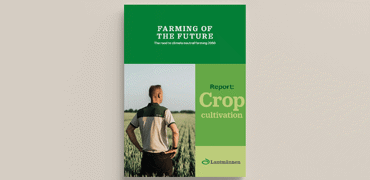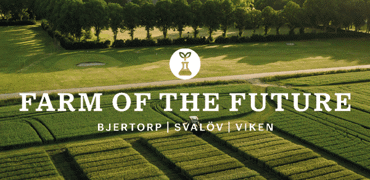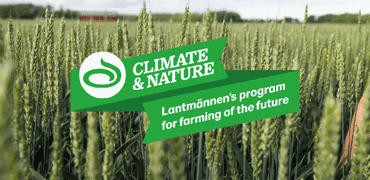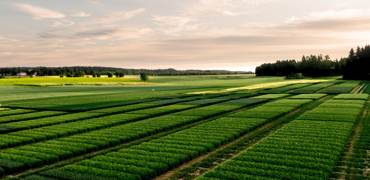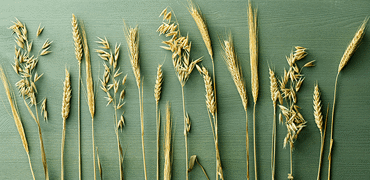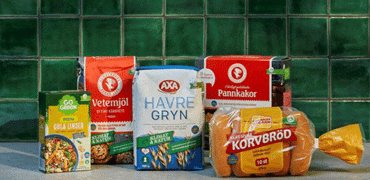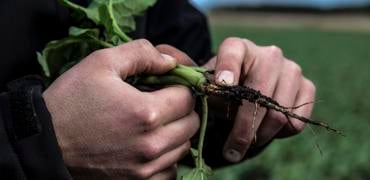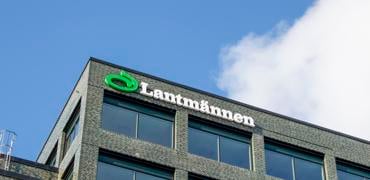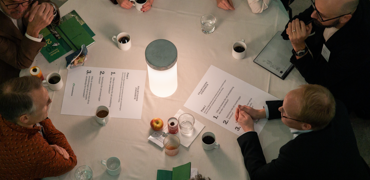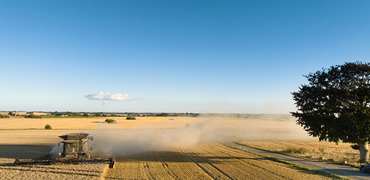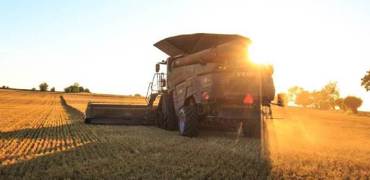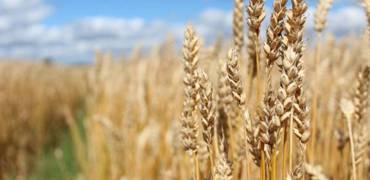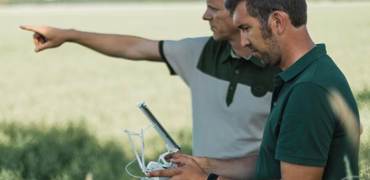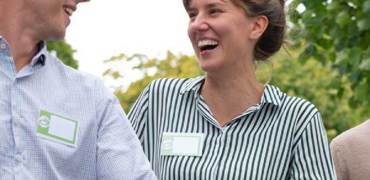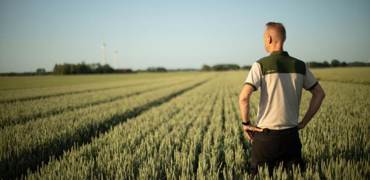Visions and methods for sustainable agriculture internationally
We at Lantmännen are leading the development of the Farming of the Future in the Nordic region, but the same challenges and opportunities also apply beyond our Nordic boundaries and we are engaging in important information exchanges with farming enterprises in other parts of the world. If we are to achieve genuine sustainability, agriculture must be rethought globally.
I was recently invited to speak at a digital seminar on sustainability and the future for farming cooperatives. Alongside me on the panel was Didier Robert from the French agricultural cooperative InVivo, which has over 200 cooperatives in France and other parts of Europe.
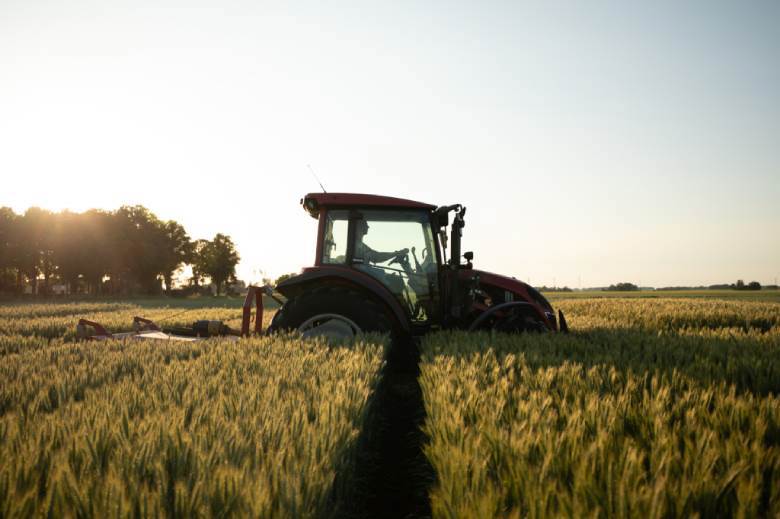
It was inspiring to hear about the opportunities InVivo envisages for farming of the future, that in many ways is in line with the issues we are working with ourselves. We shared the view that innovation, investments in research and new technology will deliver major improvements from a sustainability perspective moving forward. We can increase harvests and reduce the climate footprint from agriculture in line with the Paris Agreement goals, as Lantmännen explained in our report Farming of the Future. To achieve our goals, we invest SEK 250–350 million in research and development annually, and are engaged in the entire value chain from field to fork.
The question of financing adaptations and actions that must be done on farms to reduce climate impact, which many farmers are now doing and will need to do in the future, is high on the agenda for both Lantmännen and InVivo. The cultivation chain is where the greatest climate change effects from our activities can be found, and it is also here where we can make the biggest difference when it comes to reducing emissions. In so doing, we need to concentrate our actions in cooperation with our members, the farmers. We know our members are prepared to accept these challenges but they need to be compensated for the investments that are required. Didier Robert talked about the work InVivo is doing to package new commercial food concepts based on sustainability aspects, to attract consumers. Lantmännen’s Climate & Nature Programme aims to raise awareness of our sustainability work in a similar way in a concept that becomes clear to consumers and that generates interest and a greater willingness to pay.
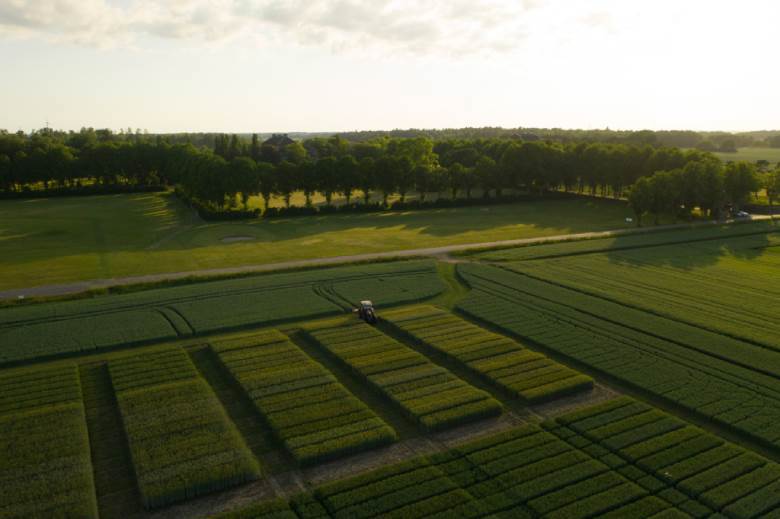
We dedicated the second half of the panel discussion to the subject of climate change and the impact this will have on our enterprise. We can see the effects the changing climate is already having on agriculture today, the increase in extreme weather, the threats to biodiversity, that we need to address soil health and fertility and at the same time strive to enable higher productivity that is sustainable in the long term. I explained about the Lantmännen model that is based on cooperation where we are able to reinvest a significant proportion of our profits in research and development. The long-term perspective is key here, something InVivo also emphasised. A long-term perspective is a natural part of a cooperative business model and we are working towards clear 2030 and 2050 goals. This will also demand a large measure of cooperation between all the different links in the whole value chain for food. This is important from an international perspective as we operate in a global market.
With increased productivity we can reduce our climate impact per hectare, with profitable enterprises we can invest in new technology and adapting methods to become more sustainable can continue.
Here, I wish to stress how important it is that these different perspectives on sustainability hang together and are viewed as a coherent whole. In our Farming of the Future report, we present our three Ps: Planet, Productivity and Profit, that all need to be strengthened and work together. With increased productivity we can reduce our climate impact per hectare, with profitable enterprises we can invest in new technology and adapting methods to become more sustainable can continue. With regard to the first P, Planet, we are working on the transition to renewable fuels and energy, and sustainable input goods for fertilisers and crop protection. Within the second P, Productivity, this concerns locally adapted initiatives to maximise harvests, and the development of plant varieties with the resistance to withstand extreme weather patterns. And for the last P, Profitability, cost effectiveness, competitiveness and new investments are crucial.
One important issue is the development of new plant varieties that have a greater resistance to the changes we cannot avoid. Here, we mean developing robust varieties that can withstand drought and uneven rainfall and finding ways to address new fungal diseases and pests. We are making heavy investments in plant breeding, and I am convinced that we will see good results that will lead to permanent increases in productivity and with this, sustainability.
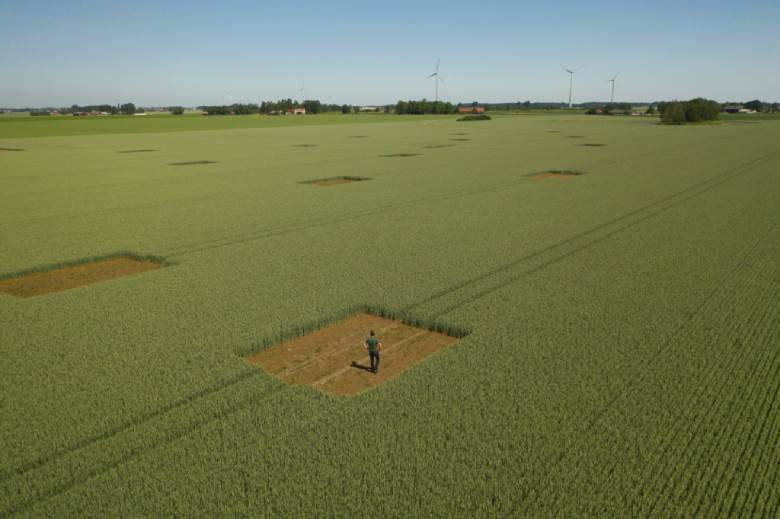
The audience also raised issues such as biodiversity, an incredibly important issue that will be a big focus area for us moving forward. We know that climate and biodiversity are closely linked and that efforts to reduce climate impact are vital in halting the negative trends for flora and fauna on our planet. Via measures such as flowering edge zones, lark plots and precision cultivation with a reduction in the use of chemicals, we can also boost biodiversity. Didier Robert provided a concrete example of efforts being made by our French colleagues in the shape of a new programme to document bees.
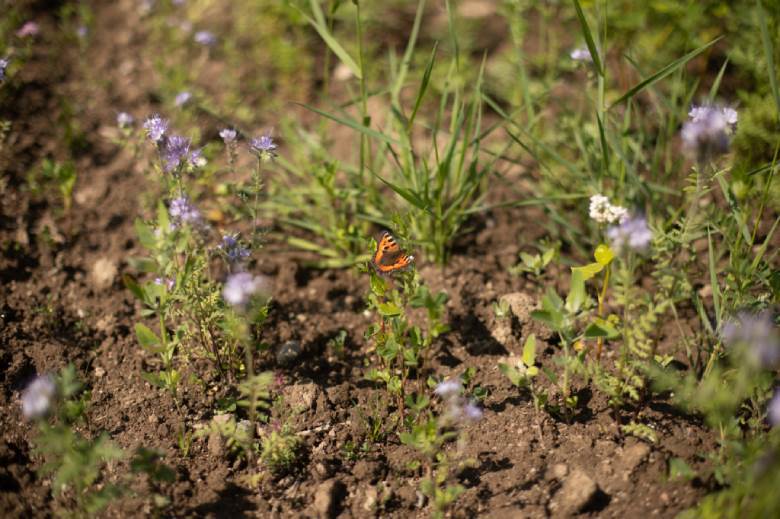
Altogether, the panel discussion painted a picture of how we in the agricultural sector can do so many things and that we have already made significant progress in both Sweden and other parts of Europe. Sharing experiences and knowledge with international colleagues is important. We know that more cooperation and such exchanges will be required at both national and international level, across the entire food chain, if we are to achieve the tough goals set. Lantmännen is one of the leaders when it comes to setting ambitious and concrete goals to reduce climate impact, and with our major investments in research and development together with a professional perspective, I am convinced that we will continue to play a leading role in driving the Farming of the Future.






